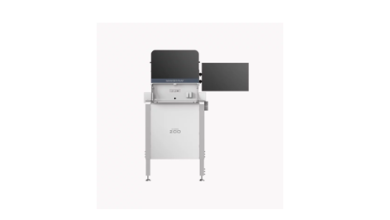Getting Ahead with Cognitive Ability Testing: Improving Your Hiring Process

Employers in the employment market nowadays are seeking applicants with not only the required qualifications and skills but also cognitive capacity. To evaluate candidates’ cognitive skills and likelihood of success, cognitive ability testing is becoming more and more common. We’ll look at the advantages of cognitive ability testing and how it can enhance your hiring procedure in this article.
What is a cognitive ability test?
An existent’s capacity for different internal conditioning, similar as literacy, problem working, decision- timber, and logic, is pertained to as cognitive capability. A standardised evaluation used to gauge someone’s cognitive capacity is called a cognitive capability test. These examinations are generally given to job campaigners to assess their cognitive capacities and implicit for success in a particular position.
Testing cognitive capacities can be used to estimate a variety of chops, including memory and spatial perception as well as verbal, abstract, and quantitative thinking.
Multiple-choice questions or other sorts of assessments are included in these tests, which are frequently timed.
Cognitive Ability Testing’s Advantages
Using cognitive ability testing throughout the employment process has a number of advantages, including:
- Tests of cognitive capacity have been set up to be a dependable index of unborn work performance. According to exploration, those with stronger cognitive capacities generally do more at work, especially in positions that call for problem- working and decision making chops.
- Testing cognitive abilities can aid in reducing bias during the recruiting process. By adopting objective assessments of cognitive capacity, companies can make more informed recruiting decisions based on merit rather than subjective considerations such as race, gender, or ethnicity.
- Increasing Retention Rates: Employers can increase retention rates by choosing employees with stronger cognitive skills. Higher cognitive ability individuals are frequently more capable of handling complicated jobs and problem-solving, which results in enhanced job satisfaction and decreased turnover.
Testing Cognitive Ability in Your Hiring Process
There are a number of measures you may take if you want to incorporate cognitive ability test for hiring procedure:
- Choose the Right Tests: There are a variety of cognitive ability tests available, each intended to evaluate a particular set of cognitive talents. Prior to putting cognitive ability testing into practice, it’s critical to identify the tests that are most pertinent to the employment function.
- Employers should provide hiring managers with training on how to administer and interpret cognitive ability testing. This will guarantee that the exams are given consistently and that the results are correctly understood.
- Employers should make sure that the procedures they use to test employees’ cognitive abilities adhere to all applicable legal and ethical requirements. The examinations must be relevant to the job and must not unfairly discriminate against any protected classes, among other things.
- Combining cognitive ability testing with other assessment methods : Mental ability tests should be combined with other methods of evaluation, such as interviews and reference checks. This will give a fuller picture of the applicant’s suitability for the position.
How to Effectively Use Cognitive Ability Testing
Employers should adhere to the following best practises in order to use cognitive ability testing effectively:
- Employers should make use of standardised exams that have been normed and validated using a representative sample. By doing this, the results are guaranteed to be accurate and comparable to a standard.
- Fair and Consistent Test Administration: Employers should treat all applicants equally and similarly when administering cognitive ability exams. This entails offering equal testing opportunities to candidates and making sure that tests are given consistently.
- Employers should use test findings in conjunction with other evaluation methods, such as reference checks and interviews, to determine a candidate’s cognitive competence. This will paint a clearer picture of the applicant’s abilities and aptitude for the position.
- Employers should refrain from placing an excessive amount of emphasis on test results, even if they can be a beneficial tool in the hiring process. The findings of the test should be compared to other things, like experience, education, and personality qualities.
- Provide Candidates with Feedback: Employers should give candidates feedback on the results of their cognitive ability tests. Candidates may gain a better understanding of their strengths and limitations as well as helpful criticism for next job applications.
Testing Cognitive Ability: Potential Challenges and Limitations
Although cognitive capacity testing can be a useful tool in the recruiting process, there are certain potential difficulties and restrictions to take into account, such as:
- When taking cognitive ability tests, some applicants may experience test anxiety, which could affect their test results. In order to lessen the effects of test anxiety, employers should establish a friendly testing environment.
- Cultural and language bias may be present in cognitive ability assessments, which may unfairly disfavour some candidates. Employers should use exams that have been verified on a varied population and take into account making allowances for applicants who might have trouble with language limitations.
- Cost and Time: Testing for cognitive abilities can be both expensive and time-consuming. When deciding whether to invest in cognitive ability testing for their particular hiring requirements, employers should weigh the costs and benefits.
Conclusion
Employers can gain significant insights into candidates’ cognitive talents and likelihood of success by using cognitive ability testing as a tool in the recruiting process. Still, it’s pivotal to combine cognitive capability testing with other assessment styles and to take into account any implicit difficulties and constraints.
When deciding whether to include cognitive capability testing in the hiring process, employers should precisely assess which tests are most applicable for the position being filled, train hiring directors on how to conduct and interpret the tests, and corroborate that all legal and ethical conditions are met.
Employers may enhance their hiring process and choose individualities with the essential cognitive chops to succeed in the job part by using cognitive capability testing in a fair and harmonious manner.
Leading supplier of online assessment solutions, such as tests of cognitive ability, is Mercer | Mettl. They use cognitive ability tests to gauge a candidate’s propensity for problem-solving, critical thinking, and decision-making, which are key abilities for many employment tasks.




